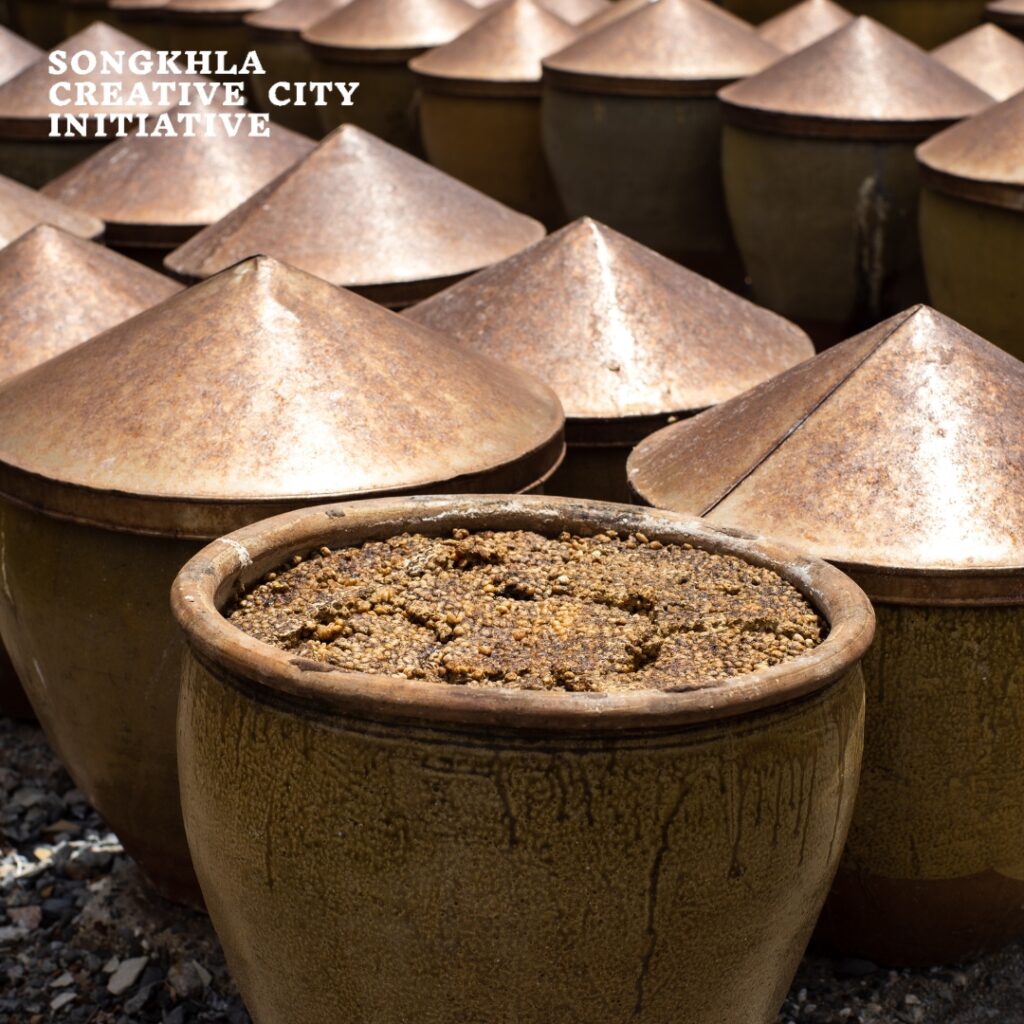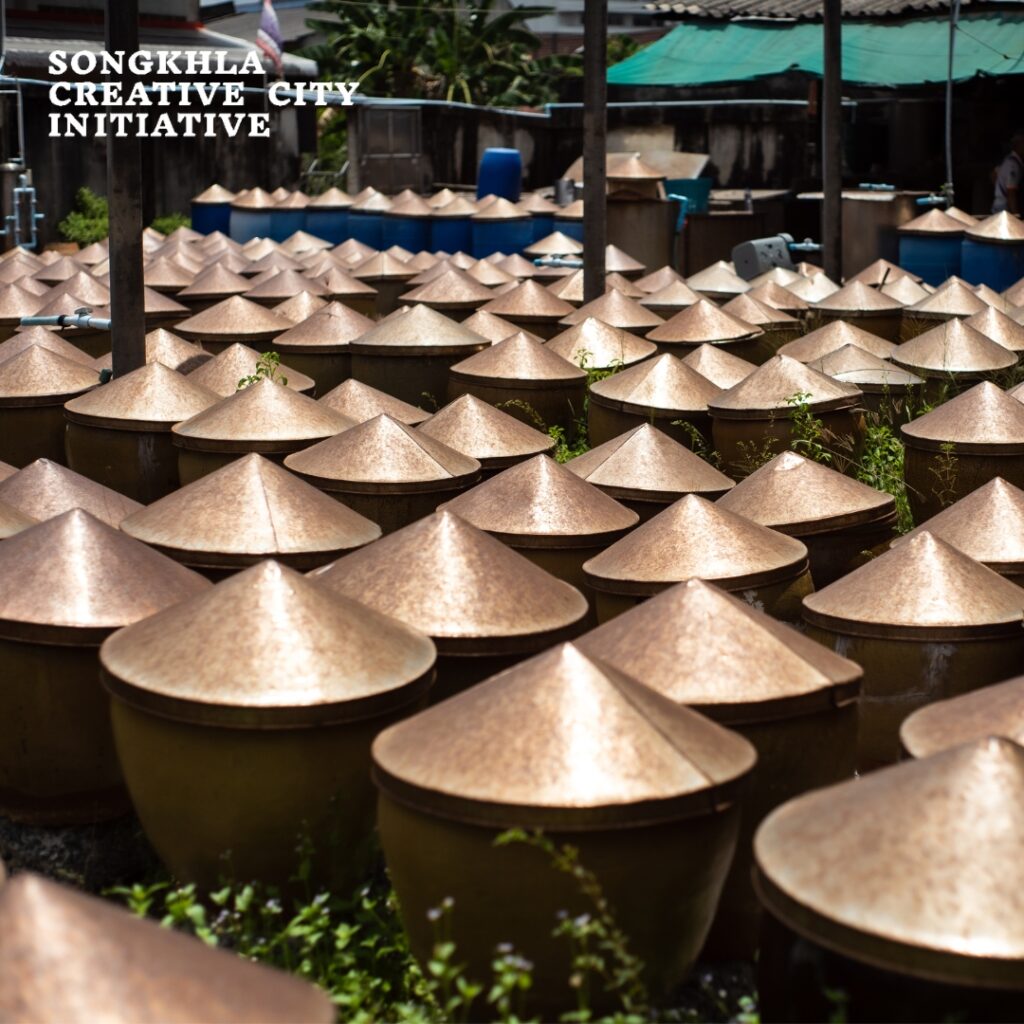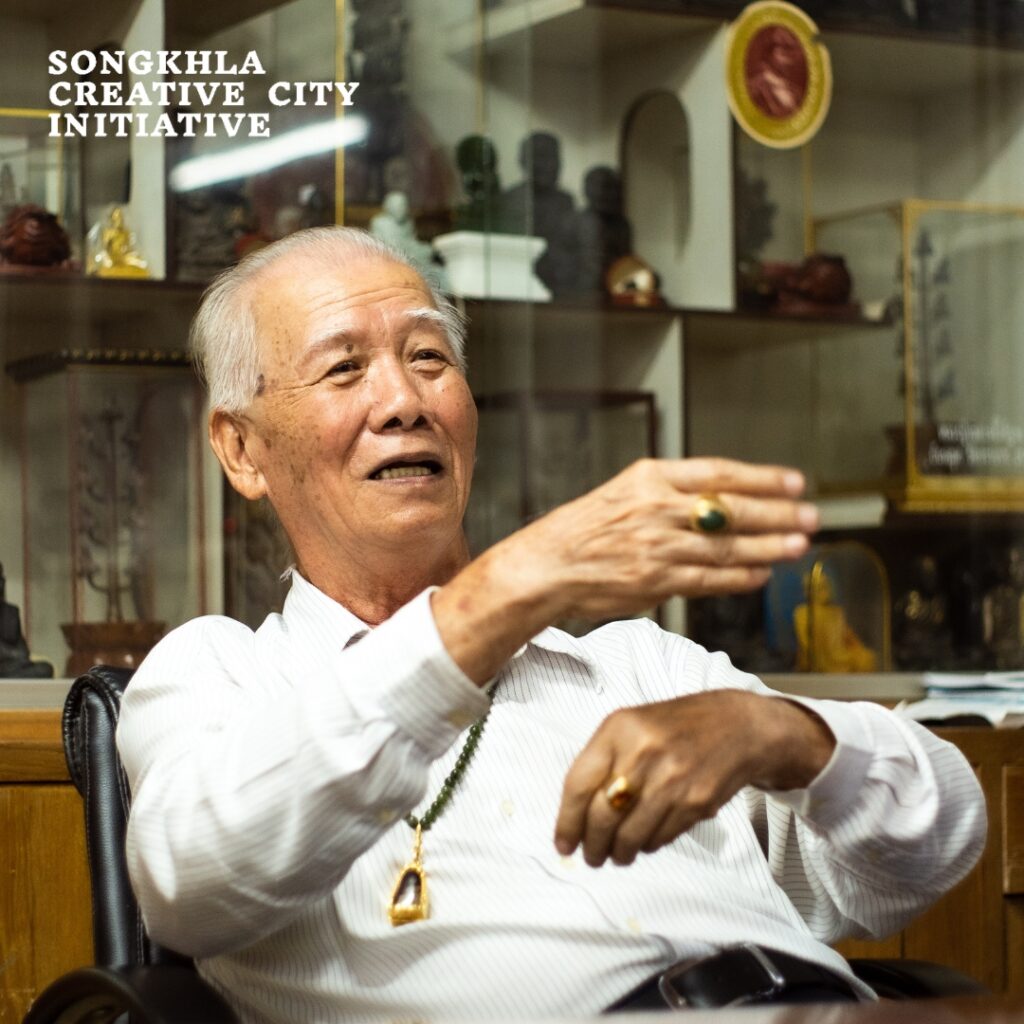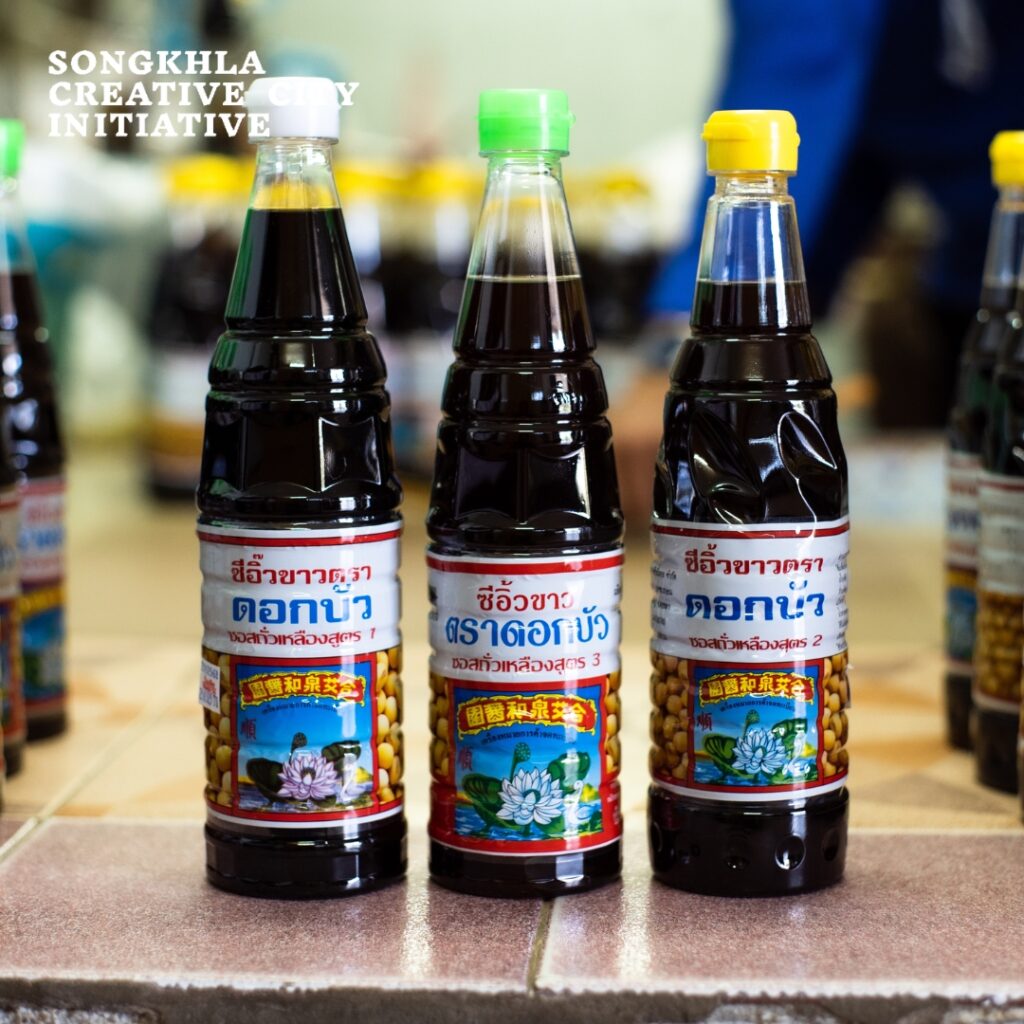Light soy sauce is a popular condiment among the Thai-Chinese population, with a unique slightly-salty flavor, although less so than fish sauce, and distinctive aroma. In Songkhla Province there are many local brands of soy sauce, including Rooster, Tiger, and Dragon brands. However, the only brand that continues to utilize the natural fermentation process in a traditional way is Lotus Brand from Hat Yai.

Chinwor Soy Sauce Factory is located in a hidden street away from busy traffic, despite being in the center of the city. Wide-mouth clay jars covered with pointed lids are arranged in rows. Soy sauce fermentation requires an open, clean space with plenty of ventilation. The insides of the jars are packed tightly with soybeans and fermented with rice flour, allowing a full three months for the natural microorganisms within to decompose the mixture from solid soybeans into a liquid. The natural fermentation process uses only sunlight, and care must be taken not to let rain in.

The name “Chin wor” in Cantonese means “water that flows continuously without stopping”. The factory produces soy sauce for Lotus Brand, and has operated in Hat Yai for over 80 years.
Mr. Niyom Likhitkanul, owner of Chin wor Soy Sauce Factory, says that he has been in business since 1974, taking over from the previous owner who had been operating for over 30 years prior. Soy sauce fermentation is part of the traditional wisdom of the Teochew Chinese people, using only soybeans, rice flour, salt, the Hat Yai sunlight, and Ratchaburi jars. Fermentation in stainless steel tanks does not produce the same aroma as fermentation in jars.

The flavor of soy sauce produced by the natural fermentation process improves the longer it is fermented, creating a more intense and lasting taste, and providing microorganisms that have health benefits for the body. Formula 1 soy sauce is commonly used for dipping and cooking steamed shrimp, crab, and fish for soy sauce-based dishes, the resulting food texture being more tender than if salty or fish sauce is used. Formula 2, where brine is added to a jar of fermented soybean residue, is popularly used for general cooking. Formula 3 is an economical solution to reduce costs for shops.
Lotus Brand Soy Sauce is used in many Chinese restaurants throughout Hat Yai such as Washington, Tor Huat, and Hia Ping also have centers that receive products for distribution, especially to local stores such as Lee Wiwat, K&K, and other wholesalers. However, they have abstained from sale through large chain-stores such as 7-Eleven, due to refusal to compete with existing customers. The focus is on distribution of products, not with competition between each other.

The natural fermentation process may take a long time, but goods are produced each day. In addition, sweet dark soy sauce and other types are produced from soybean by-products leftover throughout the process, which larger factories cannot produce due to their method of total decomposition by chemical means. At present, the Chin wor Soy Sauce Factory is also open as a learning center for educational institutions.
“The key to selling a product that is already popular on the market is to maintain its quality. The recipe must be exact. The taste can not be distorted. Maintaining the taste of our soy sauce is also the way we maintain our credibility” – Mr. Niyom.